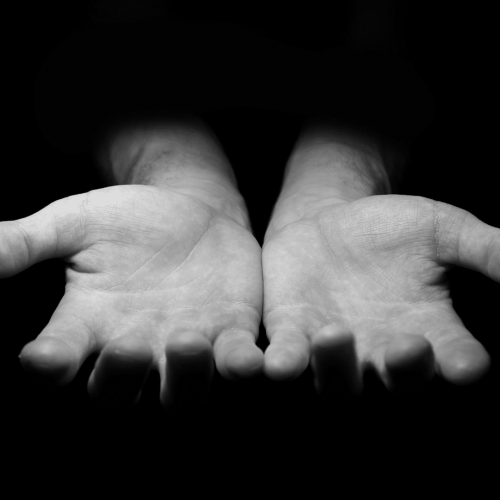Like many of the matters reviewed in previous articles on this same subject, the commonly accepted understanding of hell is not biblical and based primarily on the influence of Greek philosophers and mythology.
In the Bible, a number of Hebrew and Greek words are translated “hell” and need proper examination. The Hebrew word “sheol” (59 occurrences) and the corresponding Greek word “hades” (10 occurrences) are often translated hell in some older translations like the King James Bible. However, most of the newer translations like the ESV, NAS, and NAU used the words sheol, hades, or “grave.” Both words mean the same, that is “grave” and not “hell.” Other words are used for hell, a place in the future. The final state of the wicked is defined and described in a variety of ways, but all amount, in the end, to the same thing — rejection by God, death, and extinction forever.
The common worldview and Christian doctrine are that the evil one’s destiny is a place of eternal hellfire. Webster’s Dictionary defines hell as “the place where fallen angels (devils) live, and to which sinners and unbelievers go after death for torment and eternal punishment.” Many seem to believe that Satan is the ruler of hell, and that its location is under the earth. Yet, there is no such place as this described in the Bible. The Scriptures say of Satan that he currently is “the prince of the power of the air” (Ephesians 2:2). His location is not beneath earth in hell but rather in high places according to Ephesians 6:12: “We wrestle against … spiritual wickedness in high places.” The Apostle John was given revelation regarding the future destiny of the devil as is recorded in the book of Revelation, he will be thrown into the lake of fire. However, right now, he is alive and active in the world.
The “hell” that Webster’s Dictionary described and that so many believe today began around 600 B.C. and primarily evolved from Greek mythology. The Greeks believed in a three-story universe. The top story was heaven; the middle was earth; and the bottom story was the underworld. A god named Hades ruled the kingdom of the dead, which had the same name. The kingdom of the dead was believed to be beneath the earth. The ancient Romans preserved without change almost all the myths about Hades and his kingdom, but they called the god Pluto. Our traditions about Satan as the ruler of hell emanate from this mythology! Although this concept of hell is commonly accepted, it has absolutely no biblical basis.
Two other words translated as hell are the Hebrew word “hinnom” and the corresponding Greek word “gehenna.” When Jesus taught, he referred to gehenna. Perhaps this is the cause of some misunderstanding.
Matthew 5:22, 29-30 But I say to you that everyone who is angry with his brother shall be guilty before the court; and whoever says to his brother, ‘You good-for-nothing,’ shall be guilty before the supreme court; and whoever says, ‘You fool,’ shall be guilty enough to go into the fiery hell [gehenna].
If your right eye makes you stumble, tear it out and throw it from you; for it is better for you to lose one of the parts of your body, than for your whole body to be thrown into hell [gehenna].
If your right hand makes you stumble, cut it off and throw it from you; for it is better for you to lose one of the parts of your body, than for your whole body to go into hell [gehenna].
The connotation of hinnom and gehenna can be found in the Old Testament. Molech was a false Egyptian deity that the children of Israel were commanded not to worship. The worship of Molech included the burning alive of infant children.
Leviticus 18:21 You shall not give any of your offspring to offer them to Molech, nor shall you profane the name of your God; I am Yahweh.
Nonetheless, Solomon built a high place for Molech during the latter part of his reign (1 Kings 11:7). Many years later, Josiah tried to eliminate the worship of Molech which apparently had become intertwined among the Israelites.
2 Kings 23:10 He also defiled Tophet, which is in the valley of the son of Hinnom, that no man might make his son or his daughter pass through the fire for Molech.
Jeremiah 32:35 “They built the high places of Baal that are in the valley of Ben-hinnom to cause their sons and their daughters to pass through the fire to Molech, which I had not commanded them nor had it entered My mind that they should do this abomination, to cause Judah to sin.
Due to the worship of Molech and other abominable acts, Israel and Judah were then taken captive by the Assyrians and Babylonians respectively. The place where Molech was worshipped and the children were burned was the Valley of Hinnom. It was a deep narrow ravine next to the city of Jerusalem. After the Babylonian exile, in order to show their abhorrence of this location, they made it a city dump where they burned refuse. The fires in the valley continually burned. The Jews associated this valley with two ideas: (1) that of idolatrous practices and the suffering of the victims that had been sacrificed and (2) that of filth and corruption. The Valley of Hinnom then to most became a symbol of the abode of the wicked.
The Greek word “Gehenna” is the corresponding word to the Hebrew “Hinnom.” When referring to Hinnom or Gehenna, there was not one iota of understanding that the person burned eternally. Rather, the person died and, like the sacrificed children and rubbish, was annihilated and turned to ashes. By the time of Jesus Christ, the word had evolved to denote only hell, the place of future punishment. When Jesus spoke of “hell fire” (Matthew 5:22, 29, 30; 10:28; 18:9; 23:15, 33; Mark 9:43, 45, 47; and Luke 12:5), he was not referring to a place of eternal torture but rather Gehenna which implied everlasting separation from God, death, and annihilation. His teachings were a reflection of his understanding of the lake of fire which is spoken of in the book of Revelation. The lake of fire is for the beast, false prophet, and those that receive the mark of the beast.
Revelation 19:20 And the beast [anti-christ] was seized, and with him the false prophet who performed the signs in his presence, by which he deceived those who had received the mark of the beast and those who worshiped his image; these two were thrown alive into the lake of fire which burns with brimstone.
The devil, the grave, and those not written in the book of life will be cast into the lake of fire.
Revelation 20:10, 12-15 And the devil who deceived them was thrown into the lake of fire and brimstone, where the beast and the false prophet are also; and they will be tormented day and night forever and ever.
And I saw the dead, the great and the small, standing before the throne, and books were opened; and another book was opened, which is the book of life; and the dead were judged from the things which were written in the books, according to their deeds.
And the sea gave up the dead which were in it, and death and Hades [grave] gave up the dead which were in them; and they were judged, every one of them according to their deeds.
Then death and Hades [grave] were thrown into the lake of fire. This is the second death, the lake of fire.
And if anyone’s name was not found written in the book of life, he was thrown into the lake of fire.
The book of Jude provides insight regarding eternal fire as it is compared to that of Sodom and Gomorrah.
Jude 1:7 just as Sodom and Gomorrah and the cities around them, since they in the same way as these indulged in gross immorality and went after strange flesh, are exhibited as an example in undergoing the punishment of eternal fire.
Sodom and Gomorrah are held up throughout the Scriptures as a type for God’s final judgment. Fire and brimstone totally obliterated these locations with all of their inhabitants. The destruction was so complete that to this day no one is certain where these cities were. Eternal fire does not mean that the person burns in hell eternally but rather that the effects are everlasting — separation from God, death, and annihilation.
The lake of fire spoken of in Revelation must not be a literal lake of fire because it has the ability to destroy spirit beings, death, and the grave. Similar to Sodom and Gomorrah, the lake of fire represents everlasting, irreversible destruction. The result of it will be the complete elimination of the beast, false prophet, those with the mark of the beast, the devil, death, grave, and those not written in the book of life. These beings and things will not live on in the age to come.
The words “eternal” and “everlasting” are both translated from the Greek word aionios. Aionios means ages. Eternal life could be translated “ages’ life” or “life in the age to come.” “Eternal damnation” or “eternal fire” could be better translated damnation in the age to come or fire in the age to come. In God’s future Kingdom, all evil will be completely and absolutely gone forever. There will not be some remote corner preserved eternally where evil and the evil ones will continuously burn. Revelation 20:14 sums up the lake of fire as the second death. We have already established that “death” really means death. The significant difference of the second death is that it is not reversible.
2 Thessalonians 1:8-9 dealing out retribution to those who do not know God and to those who do not obey the gospel of our Lord Jesus. These will pay the penalty of eternal destruction, away from the presence of the Lord and from the glory of His power
Matthew 25:46 These will go away into eternal punishment, but the righteous into eternal life.
Revelation 2:11 He who has an ear, let him hear what the Spirit says to the churches. He who overcomes will not be hurt by the second death.
Revelation 20:6 Blessed and holy is the one who has a part in the first resurrection; over these the second death has no power, but they will be priests of God and of Christ and will reign with Him for a thousand years.
Revelation 21:8 But for the cowardly and unbelieving and abominable and murderers and immoral persons and sorcerers and idolaters and all liars, their part will be in the lake that burns with fire and brimstone, which is the second death.
In the next article, we will see the Greek philosophers’ influence on the doctrine of purgatory, preexistence, and unconditional immortality.




0 Comments